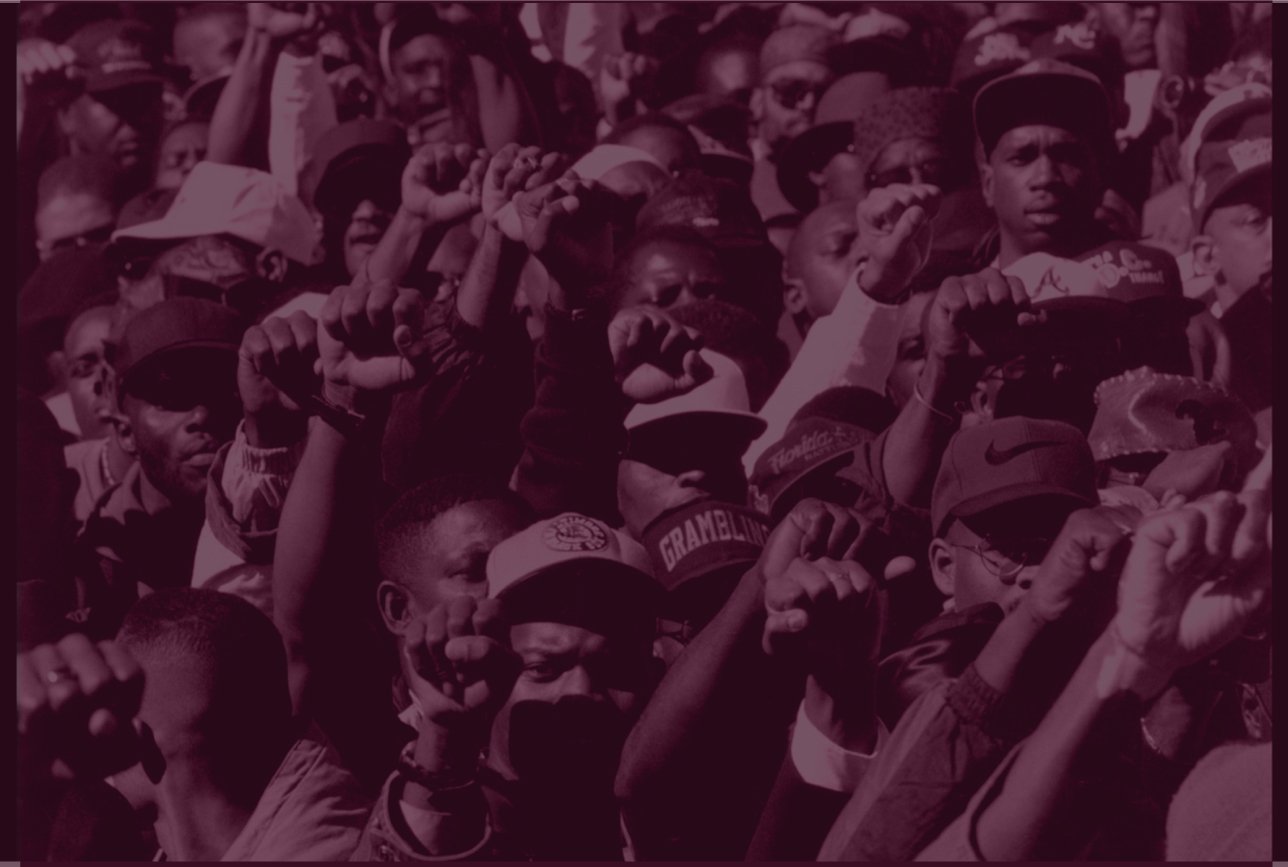
About Movement Lawyering

What is Movement Lawyering?
Movement lawyers work in deep collaboration with social movements, leveraging every legal hook possible to build the collective power needed to transform our political and economic systems towards human dignity, multiracial democracy, and ecological harmony.
We recognize the harms caused by the legal system and walk the tightrope of engaging in zealous advocacy within that system while simultaneously reimagining it.
Working within movements, we dream with and defend organized groups of everyday people-workers, tenants, students, and migrants-as they challenge the hardest things in their lives. We believe in the power of working people and understand that organized communities, not isolated lawsuits, drive transformational change.

Why is Movement Lawyering Important?
Investing in movement lawyers and driving the legal sector towards more movement-aligned practice is vital because legal work is ultimately about governance and democratic expression. When marginalized people wield law to defend community interests and fight oppressive systems, it strengthens the fabric of democracy.
By pairing legal assistance with organized constituencies, movement lawyers avoid the pitfalls of traditional public interest lawyering that is often designed to provide legal assistance in an atomized and reactive fashion. Movement lawyers treat the root causes of injustice by supporting our clients to become leaders in their own communities who create systemic change and shift power such that their community is not exploited time and time again.
This model is not only strategic, but more transparent and accountable as it allows clients to weigh in about where scarce legal resources are spent. By treating clients as partners, lawyers can help clients assert control over their lives and their communities.
What is the lineage of Movement Lawyering?
The concept of movement lawyering comes from a lineage of women and people of color who have been in deep collaborations with movements for racial, gender, economic, health, and environmental justice.
Movement lawyering is often thought to be a newer approach that has emerged in recent times. In fact, movement lawyering has roots in a global lineage that has been unfolding for decades. Though not always termed movement lawyering, the practical work of lawyers of conscience using law to support social movements has existed for hundreds of years. While the practice has existed for years, a more formalized discourse and theory on movement lawyering is a newer evolution. Much of what has been documented and written about movement lawyering so far has come from law professors and academics, but there is a broader theory of movement lawyering that has been orally passed down from practitioner to practitioner.
At Movement Law Lab, we are attempting to bridge the gap between the formal academic writing on movement lawyering and the global lineage of movement lawyering held and stewarded by practitioners across the world. The MLL team has spent over 15 years building the theory and practice of movement lawyering. We have run summer academies for hundreds of law students, launched new movement lawyering organizations and networks reaching thousands, hosted global conferences, taught in law schools, written articles, and held workshops across the world. Our goal has been to cement movement lawyering as a valid way to practice law and train thousands of new lawyers to have the commitment, skills and know-how to work collaboratively with social movements to advance systems change.

Movement Lawyering Core Assumptions
Movement lawyering has a distinct starting point from other legal traditions. Our core beliefs and underlying assumptions are:
Social change requires shifting power, culture, and systems. Social change involves more than tinkering in the margins of systems, mitigating immediate harms or even changing laws. It requires redesigning the underlying systems and structures of society, shifting norms and culture, and most importantly changing who has economic and political power.
Social movements create social change. Throughout history, social movements have agitated for and won transformational change. From the labor and civil rights movements of the past, to the immigrants’ rights, climate justice and Movement for Black Lives of the present, when directly affected people take collective action, lead their own struggles, and build power to change the root causes of oppression, social change results.
Social movements are powered by visionary activists, organizers and community organizations fighting for a world that is better for people and the planet. Grassroots groups such as those fighting for climate justice, disability justice, indigenous and queer communities, are the driving force behind movements to dismantle existing systems of oppression in our society while building alternative institutions to take their place. Their approach is moral, unifying, and sustained through powerful leadership.
Law and lawyers have a role to play in social change. History has shown us that law is neither objective nor neutral; law is not ethical or moral on its own. However, throughout history, lawyers have worked alongside social movements to use the law to codify social justice wins, defend leaders, and transform our collective sense of what is possible. When put in the hands of the people, law can be both a sword and shield for advancing the causes of the most marginalized in our society.
Law is an important arena of struggle, but it has its limits. Movement lawyers walk the tightrope of engaging in zealous advocacy, bringing the fight to the courts while acknowledging that law alone will not solve community challenges. Managing this careful balance is what it means to be a movement lawyer.

